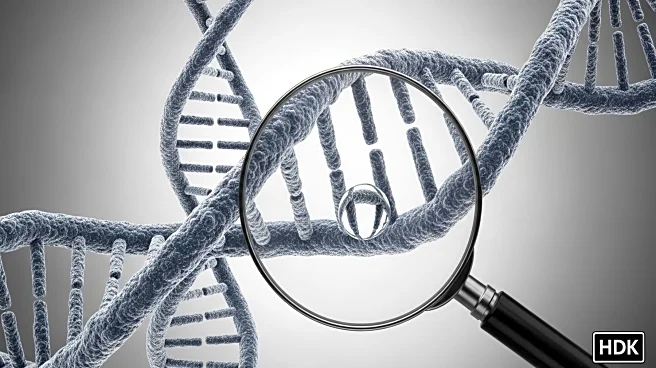What's Happening?
Recent research has identified a novel variant of the MCMDC2 gene as a cause of non-obstructive azoospermia (NOA) in a consanguineous Chinese family. NOA is a condition characterized by the absence of sperm in the ejaculate due to genetic factors. The study utilized whole-exome sequencing (WES) to pinpoint the c.G226T/p.Val76Phe variant in the MCMDC2 gene, which plays a crucial role in meiotic recombination and fertility maintenance. Bioinformatics analysis suggests that this variant may alter the structure and function of the MCMDC2 protein, providing new insights into the genetic etiology of NOA.
Why It's Important?
The discovery of the MCMDC2 variant expands the understanding of genetic causes behind NOA, a significant contributor to male infertility. This finding could lead to improved diagnostic methods and personalized treatment options for affected individuals. By identifying specific genetic mutations, researchers can better understand the mechanisms of fertility and develop targeted therapies. This advancement in genetic research holds potential for broader applications in reproductive medicine, offering hope to those affected by infertility.
What's Next?
Further research is needed to explore the full spectrum of MCMDC2 mutations and their impact on fertility. Genetic counseling and testing may become more prevalent for families with a history of NOA, allowing for early detection and intervention. Additionally, the study's findings could prompt investigations into similar genetic variants in diverse populations, potentially leading to global advancements in infertility treatment.










